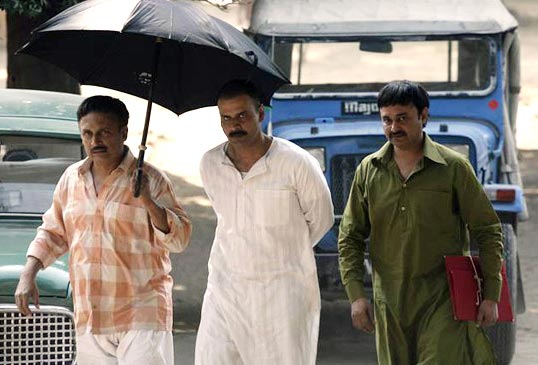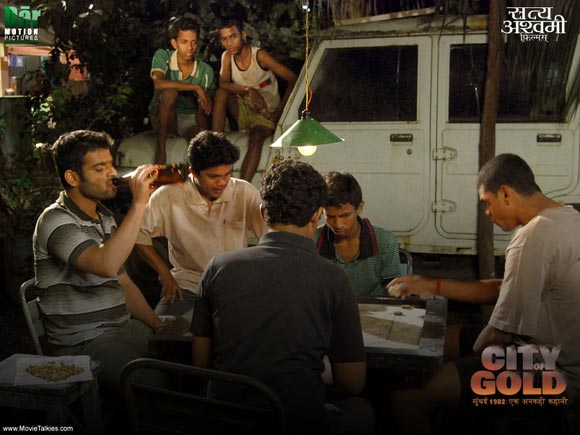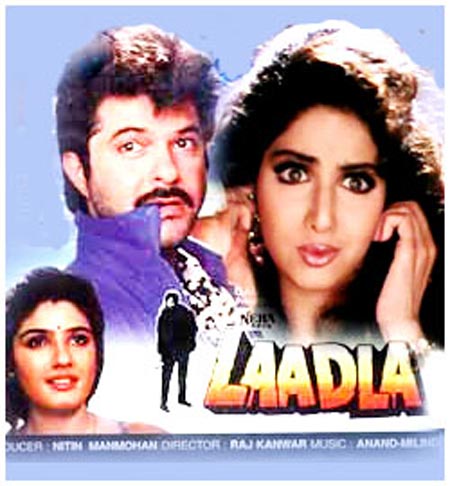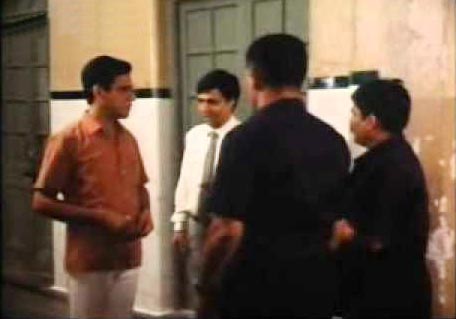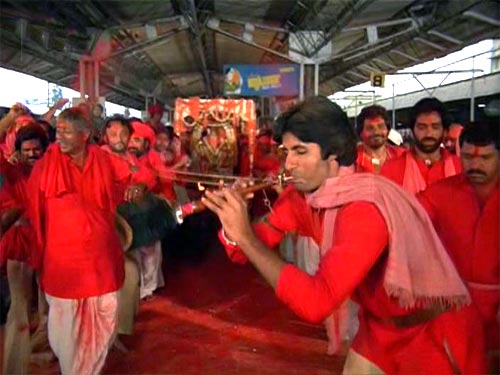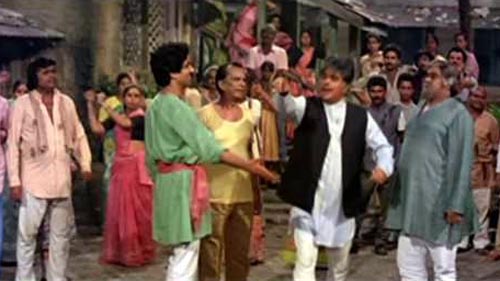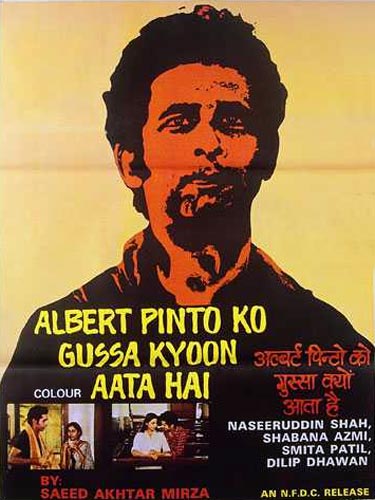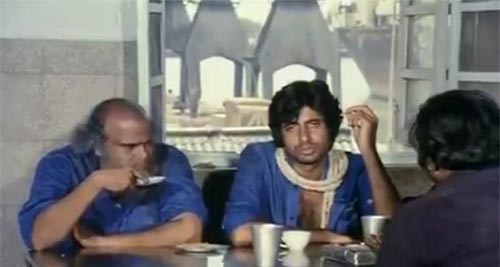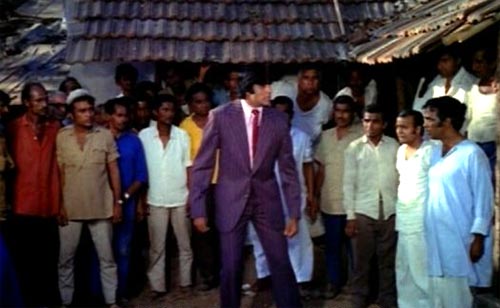 | « Back to article | Print this article |
When Trade Unions 'Strike' Hindi Films
The ongoing protest by the workers in Maruti Suzuki's Manesar plant brings back memories of a time when Hindi films were rife with themes of dissent and disillusionment, especially among the working class.
Here's looking at some Hindi films over the years where trade union strikes were at the centre of their plot.
Gangs Of Wasseypur
The newest film in the list, Gangs Of Wasseypur opens with the emergence of coal mafia in Wasseypur in Independent India of 1947 and how trade unions sprouted to protect unsuspecting and naive workers from being exploited.
It also sets the pace for the film as Sardar Khan's father, the fearless Shahid Khan turns against his tyrant employer, and later, becomes his henchman.
City Of Gold
Adapted from a play by Jayant Pawar, City Of Gold is the story of a Mumbai mill worker and his family.
Directed by Mahesh Manjrekar, the film explores the lives of scores of mill workers who lost their jobs during the Bombay textile strike in 1982.
Rang
The 1993 musical Jeetendra and Amrita Singh-starrer Rang tells the story of a broken home.
Jeetendra, a working class idealist, walks away from his rich industrialist wife after his mother-in-law, who disapproves of him because of his humble background, falsely gets him implicated in a bribery to call a strike off.
Laadla
Anil Kapoor plays the model son and factory worker in this 1994 film.
All goes well until he rubs the factory owner -- an ambitious young woman played by Sridevi -- the wrong way and she marries him to seek revenge.
He becomes the trade union leader and calls a strike to protest againt his wife/employer's tyrannical ways.
Aghaat
This 1985 Govind Nihalani film has Om Puri in the role of an intense Madhav Verma, an idealist trade union leader.
The film, a fine example of realistic cinema, closely examines the politics of trade unions.
Coolie
Best remembered for the near-fatal injury it caused to Amitabh Bachchan and the state of nation-wide frenzy that followed, Coolie (1983) has the angry young man call a strike with his colleagues.
Mazdoor
Ravi Chopra's 1983 film starring Dilip Kumar, Nanda, Raj Babbar and Padmini Kolhapure has a trade union sequence, where the textile workers go up in strike against Suresh Oberoi's character.
Albert Pinto Ko Gussa Kyoon Aata Hai
Saeed Mirza's 1980 film Albert Pinto Ko Gussa Kyoon Aata Hai portrayed the angst of an urban working class youth who is desperately looking to fit in with the upwardly mobile.
Naseeruddin Shah plays the titular character who works as a car mechanic.
Deewar
The iconic 1975 film starts with the story of an idealist trade union leader who is wrongly accused of calling off a strike when he's actually threatened to do it by his employers.
Satyen Kappu's wronged son grows up to become Vijay Verma (Amitabh Bachchan), his own brother -- the righteous Ravi Verma's (Shashi Kapoor) nemesis.
Namak Haraam
Hrishikesh Mukherjee's 1973 film Namak Haram brought Rajesh Khanna and Amitabh Bachchan together again after Anand.
A story about class struggle, the film has Amitabh in the role of a rich boy who is at odds with his best friend played by Rajesh Khanna, a worker in his factory and the union leader.
